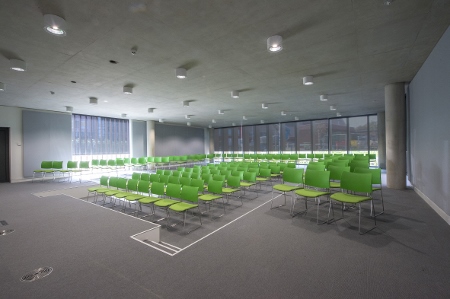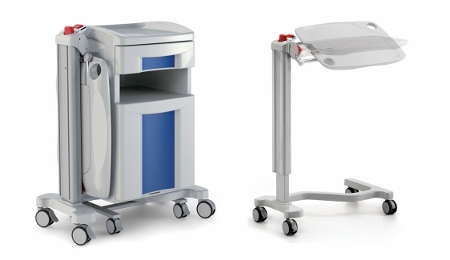Moving forward, furniture solutions for health and social care settings must be more affordable without compromising on quality. Here we explore how designs are evolving
“Furniture plays an intrinsic role in both the perception and operational aspects of health and social care facilities.
“Improving the physical and psychological patient journey, while providing an environment to empower staff, is a critical element of the furniture chosen for a healthcare setting.”
These comments from Jo Davis of furniture supplier, The Senator Group, sum up the growing level of importance being placed on interior products within specialist health and social care buildings.
But, as well as looking increasingly homely and less clinical; there are also other key drivers influencing current and future trends.
Davis explains: “Fit for purpose and value for money are part of furniture choices nowadays, providing the environment that budgets allow.
“In many cases furniture is only considered as an after-thought when budgeting for facilities, whereas in reality furniture is a long-term part of the whole healthcare provision and should be seen as such.”
Davis said: “During an extended period where finances are severely restricted, cost will be a major driver for designers and healthcare professionals, but not to the detriment of quality. “Suppliers moving forward will be expected to work smarter and provide value-for-money solutions.”

Alder Hey has also used Senator products
Financing options
This includes offering new financing options – a key driver that will see companies succeed in the current climate where there is a shortage of capital.
“We offer lease arrangements on furniture packages to spread costs over an extended period,” said David. “However, due to the nature of annual and project budgets, it is rarely taken up within the healthcare sector.
“However, innovation funding and collective procurement should be considered as attractive options and can include the costs of reusing and recycling to reduce the impact of more-expensive product, offering greater choice and longevity.
“Leasing will, in all market sectors including healthcare moving forwards, provide the option to install vastly-superior environments that will improve patient experience, attract and retain a higher calibre of staff, and enhance overall wellbeing of its users.”
Looking forward to 2016 and beyond, The Senator Group’s healthcare team forecasts an increase in collaborative working to create a more-domestic feel to health and care environments.
Choice will also be essential, in terms of suitable styles, durability, infection control, DDA compliance and the provision of an entire holistic patient and staff experience.
And increased use of colour will help to create a less-clinical feel, following trends already being seen in office and educational arenas.
The Senator Group is a framework holder on the NHS Supply Chain contract for office furniture and its Lola range by sister brand, Allermuir, has already been specified at Southmead Hospital and the new Alder Hey Children’s Health Park.
“Flexibility within our designs is very important, particularly for products that are to be utilised in high-traffic areas,” said Davis.
“We ensure products can be upholstered in antimicrobial fabrics and vinyl with hygiene gaps, mono shells and streamline designs to reduce contamination pockets and dirt traps that could capture and transfer potentially-harmful pathogens.”
Also key is making products that enhance integration, particularly where space is at a premium, as well as the need for furniture to play a part in enhancing patient comfort and outcomes.
Space-saving solutions
Sidhil has recently launched an innovative space-saving bedside solution designed in keeping with the latest thinking on measures to reduce the impact on hospitals and care facilities of patient slips, trips and falls.
These are the second-most-frequent cause of death in hospitals after failure to recognise or act on deterioration, and they slightly exceed other risk factors such as hospital acquired infections, pressure sores, and venous thromboembolism.
And tackling this problem will be a key challenge for furniture designers.
Sidhil’s new Clarus range combines a bedside cabinet and over-bed table – sparking a new generation of multi-purpose furniture options.
A spokesman said: “A 2015 Loughborough University report proposed using a design and systems approach to reduce risk factors, rather than purely physiological factors and in line with this our new Clarus range represents a totally-new departure from traditional design, delivering safe and practical solutions.
“The unique design of the base enables the entire table mechanism to fold away alongside the cabinet when not in use, resulting in an ergonomic and streamlined design with no protrusions, saving space and reducing trip hazards for the modern healthcare environment, essential in today’s healthcare settings.”

The Sidhil Clarus bedside table is an example of a product that is designed to have multiple uses
